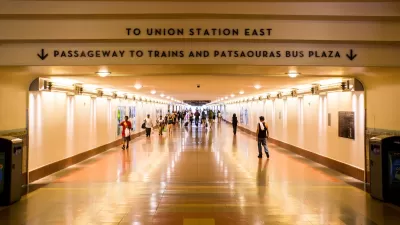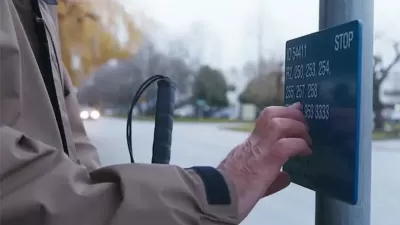In anticipation of the 2010 Winter Olympics, transportation planners in Vancouver are plotting permanent expansions to the city's public transit system. Demand will be high during the games, but many wonder what will happen after.
"When life returns to normal, will Vancouver be left with legions of commuters using sustainable transport options?
Or will people simply revert back to their cars, as one planning expert has argued? VANOC today unveiled its comprehensive transportation plan, a wide-ranging strategy that's meant to ensure athletes, spectators and media get from accommodations to venues -- and back -- in a timely manner.
Clearly, the logistics are daunting. During the Games, Vancouver will host up to 135,000 spectators each day -- the equivalent of staging 17 back-to-back Superbowls, VANOC's executive vice president Terry Wright told reporters.
And that's on top of an expected 6,100 athletes and officials, 10,000 accredited media and a 55,000 strong workforce."
FULL STORY: 2010 Games Traffic Plan a Permanent Roadmap?

Trump Administration Could Effectively End Housing Voucher Program
Federal officials are eyeing major cuts to the Section 8 program that helps millions of low-income households pay rent.

Planetizen Federal Action Tracker
A weekly monitor of how Trump’s orders and actions are impacting planners and planning in America.

Ken Jennings Launches Transit Web Series
The Jeopardy champ wants you to ride public transit.

Crime Continues to Drop on Philly, San Francisco Transit Systems
SEPTA and BART both saw significant declines in violent crime in the first quarter of 2025.

How South LA Green Spaces Power Community Health and Hope
Green spaces like South L.A. Wetlands Park are helping South Los Angeles residents promote healthy lifestyles, build community, and advocate for improvements that reflect local needs in historically underserved neighborhoods.

Sacramento Plans ‘Quick-Build’ Road Safety Projects
The city wants to accelerate small-scale safety improvements that use low-cost equipment to make an impact at dangerous intersections.
Urban Design for Planners 1: Software Tools
This six-course series explores essential urban design concepts using open source software and equips planners with the tools they need to participate fully in the urban design process.
Planning for Universal Design
Learn the tools for implementing Universal Design in planning regulations.
Heyer Gruel & Associates PA
Ada County Highway District
Institute for Housing and Urban Development Studies (IHS)
City of Grandview
Harvard GSD Executive Education
Toledo-Lucas County Plan Commissions
Salt Lake City
NYU Wagner Graduate School of Public Service





























